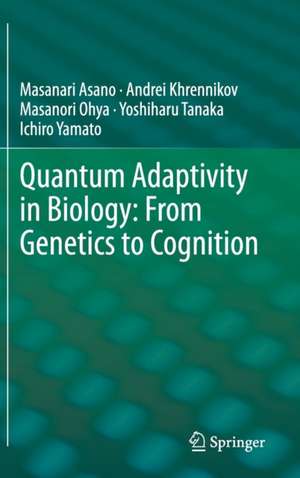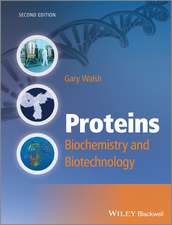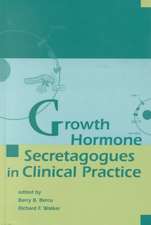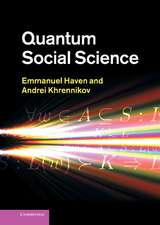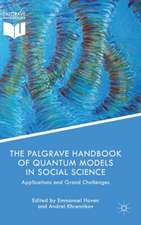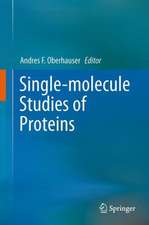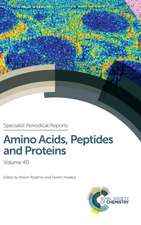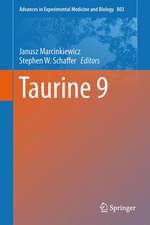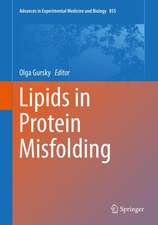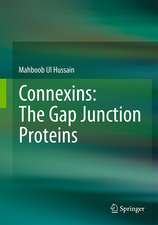Quantum Adaptivity in Biology: From Genetics to Cognition
Autor Masanari Asano, Andrei Khrennikov, Masanori Ohya, Yoshiharu Tanaka, Ichiro Yamatoen Limba Engleză Hardback – 29 apr 2015
The book begins with an introduction followed by two chapters devoted to fundamentals, one covering classical and quantum probability, which also contains a brief introduction to quantum formalism, and another on an information approach to molecular biology, genetics and epigenetics. It then goes on to examine adaptive dynamics, including applications to biology, and non-Kolmogorov probability theory.
Next, the book discusses the possibility to apply the quantum formalism to model biological evolution, especially at the cellular level: genetic and epigenetic evolutions. It also presents a model of the epigenetic cellular evolution based on the mathematical formalism of open quantum systems. The last two chapters of the book explore foundational problems of quantum mechanics and demonstrate the power of usage of positive operator valued measures (POVMs) in biological science.
This book will appeal to a diverse group of readers including experts in biology, cognitive science, decision making, sociology, psychology, and physics; mathematicians working on problems of quantum probability and information and researchers in quantum foundations.
Preț: 641.71 lei
Preț vechi: 754.95 lei
-15% Nou
Puncte Express: 963
Preț estimativ în valută:
122.79€ • 127.90$ • 102.36£
122.79€ • 127.90$ • 102.36£
Carte tipărită la comandă
Livrare economică 28 martie-11 aprilie
Preluare comenzi: 021 569.72.76
Specificații
ISBN-13: 9789401798181
ISBN-10: 9401798184
Pagini: 250
Ilustrații: XX, 173 p. 27 illus.
Dimensiuni: 155 x 235 x 15 mm
Greutate: 0.45 kg
Ediția:2015
Editura: SPRINGER NETHERLANDS
Colecția Springer
Locul publicării:Dordrecht, Netherlands
ISBN-10: 9401798184
Pagini: 250
Ilustrații: XX, 173 p. 27 illus.
Dimensiuni: 155 x 235 x 15 mm
Greutate: 0.45 kg
Ediția:2015
Editura: SPRINGER NETHERLANDS
Colecția Springer
Locul publicării:Dordrecht, Netherlands
Public țintă
GraduateCuprins
Preface.- Introduction.- Fundamentals of classical probability and quantum probability Theory.- Fundamentals of molecular biology.- Adaptive dynamics and general approach to non-Kolmogorov probability theory.- Application of adaptive dynamics to Biology.- Application to decision making theory and cognitive science.- Operational Approach to Modern Theory of Evolution.- Epigenetic Evolution and Theory of Open Quantum Systems.- Foundational Problems of Quantum Mechanics.- Decision and Intention Operators as Generalized Quantum Observables.
Textul de pe ultima copertă
This book examines information processing performed by bio-systems at all scales: from genomes, cells, and proteins to cognitive and even social systems. It introduces a theoretical/conceptual principle based on quantum information and non-Kolmogorov probability theory to explain information processing phenomena in biology as a whole.
The book begins with an introduction followed by two chapters devoted to fundamentals, one covering classical and quantum probability, which also contains a brief introduction to quantum formalism, and another on an information approach to molecular biology, genetics, and epigenetics. It then goes on to examine adaptive dynamics, including applications to biology, and non-Kolmogorov probability theory.
Next, the book discusses the possibility to apply the quantum formalism to model biological evolution, especially at the cellular level: genetic and epigenetic evolutions. It also presents a model of the epigenetic cellular evolution based on the mathematical formalism of open quantum systems. The last two chapters of the book explore foundational problems of quantum mechanics and demonstrate the power of usage of positive operator valued measures (POVMs) in biological science.
This book will appeal to a diverse group of readers including experts in biology, cognitive science, decision making, sociology, psychology, and physics; mathematicians working on problems of quantum probability and information; and researchers in quantum foundations.
The book begins with an introduction followed by two chapters devoted to fundamentals, one covering classical and quantum probability, which also contains a brief introduction to quantum formalism, and another on an information approach to molecular biology, genetics, and epigenetics. It then goes on to examine adaptive dynamics, including applications to biology, and non-Kolmogorov probability theory.
Next, the book discusses the possibility to apply the quantum formalism to model biological evolution, especially at the cellular level: genetic and epigenetic evolutions. It also presents a model of the epigenetic cellular evolution based on the mathematical formalism of open quantum systems. The last two chapters of the book explore foundational problems of quantum mechanics and demonstrate the power of usage of positive operator valued measures (POVMs) in biological science.
This book will appeal to a diverse group of readers including experts in biology, cognitive science, decision making, sociology, psychology, and physics; mathematicians working on problems of quantum probability and information; and researchers in quantum foundations.
Caracteristici
Explores the mathematical formalism of quantum information theory (the most modern and rapidly developing domain of quantum physics) in the biological context Will appeal to wide range of readers and includes introductory chapters devoted to the corresponding mathematical, physical and biological theories to help all readers understand the fundamentals Features a number of illustrative examples which can be useful in this multi-disciplinary context Includes supplementary material: sn.pub/extras
